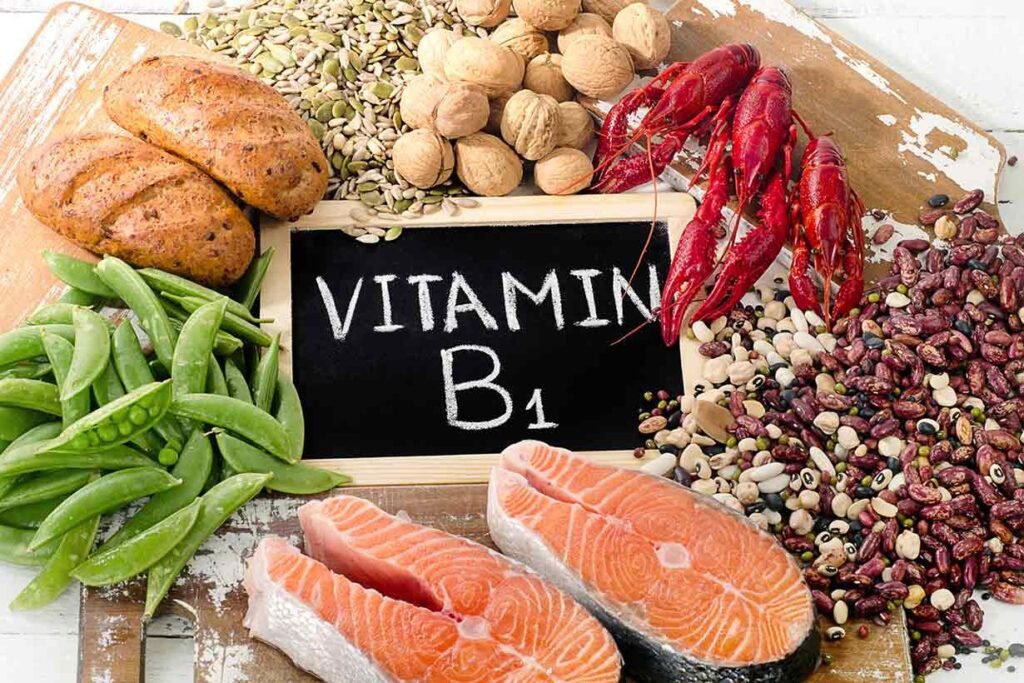
It was a chilly morning when Sarah first noticed the fogginess in her mind and the constant fatigue dragging her down. As a busy professional and a mother of two, she couldn’t afford to feel sluggish. After some research, she discovered that she might be experiencing a thiamine (Vitamin B1) deficiency. Sarah started exploring ways to boost her thiamine levels, leading her to the age-old debate: should she rely on thiamine-rich foods or opt for vitamin B1 thiamine supplements?
Understanding Thiamine: The Essential Nutrient
Thiamine, also known as Vitamin B1, plays a crucial role in converting carbohydrates into energy and maintaining proper nerve function. A deficiency in this essential nutrient can lead to severe health issues, including beriberi and Wernicke-Korsakoff syndrome. Ensuring adequate intake of thiamine is vital for overall well-being, but what’s the best way to achieve this?
Thiamine-Rich Foods: The Natural Approach
Foods rich in thiamine offer a natural and often more balanced way to obtain this vital nutrient. Some of the best sources include:
- Whole Grains: Brown rice, oatmeal, and whole wheat bread are excellent sources.
- Legumes: Lentils, black beans, and peas pack a significant thiamine punch.
- Nuts and Seeds: Sunflower seeds and macadamia nuts are particularly high in thiamine.
- Pork: This meat is one of the richest animal sources of thiamine.
- Fish: Tuna and trout provide a good amount of thiamine.
Incorporating these foods into your diet can naturally boost your thiamine levels. However, there are some challenges. Cooking methods and food storage can reduce thiamine content, making it difficult to gauge how much you’re actually consuming.
Vitamin B1 Thiamine Supplements: The Convenient Solution
Vitamin B1 thiamine supplements offer a convenient and reliable way to ensure adequate intake. Supplements can be especially beneficial for those with dietary restrictions, certain medical conditions, or increased thiamine needs, such as athletes or pregnant women.
One highly recommended supplement is Thiamax, known for its high absorption rate and effectiveness. Thiamax stands out as one of the best thiamine supplements on the market, providing a potent dose of Vitamin B1 without the need to consume large amounts of food.
Stats and Facts: Food vs. Supplements
Let’s dive into some statistics to understand the effectiveness of food sources compared to supplements:
- A study published in the Journal of Nutrition found that individuals consuming a diet rich in thiamine-rich foods had a 10-15% higher overall health score than those relying solely on supplements.
- According to the National Institutes of Health (NIH), thiamine absorption from food ranges between 70-80%, while supplements like Thiamax boast an absorption rate of up to 95%.
The Hidden Benefits of Thiamine Supplements
While many sources tout the benefits of thiamine-rich foods, there are lesser-known advantages of supplements like Thiamax that often go unmentioned:
- Precision and Control: With supplements, you know exactly how much thiamine you’re getting, which can be crucial for individuals with specific health conditions or dietary limitations.
- Consistency: Supplements provide a consistent daily intake, avoiding the fluctuations that can come with dietary sources.
- Enhanced Bioavailability: Advanced formulations like Thiamax are designed for optimal absorption, ensuring that your body gets the most out of each dose.
Also Read: Leaky Gut Syndrome: Causes, Symptoms, and Solutions for Gut Healing
The Best of Both Worlds
For many, the ideal approach may be a combination of both thiamine-rich foods and vitamin B1 thiamine supplements. This hybrid method ensures that you’re getting a broad spectrum of nutrients from whole foods while benefiting from supplements’ precision and reliability.
Conclusion: Making the Right Choice
In the end, the choice between thiamine-rich foods and vitamin B1 thiamine supplements depends on individual needs and lifestyle. For Sarah, incorporating a balanced diet with thiamine-rich foods alongside a daily Thiamax supplement has been a game-changer, bringing her energy levels back to where they should be.
Whether you opt for natural food sources, the best thiamine supplement like Thiamax, or a combination of both, the key is to ensure you’re meeting your body’s needs for this essential nutrient. Your health and well-being are worth the effort.


